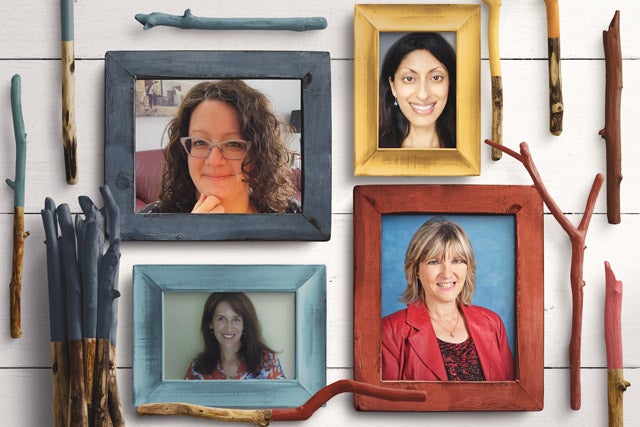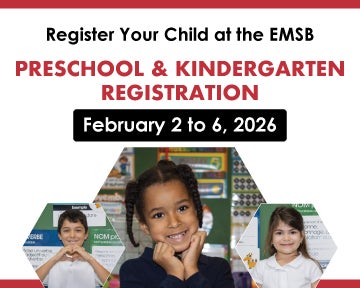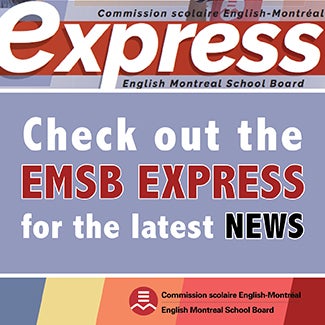Training the Next Generation of Justice Defenders

A year marked by the pandemic and worldwide lockdowns was made all the more challenging with troubling incidents of intolerance. From Black Lives Matter activism, to the continued persecution of minority groups in China and Armenia, these are heavy issues for educators to cover.
Educating on topics of contemporary but also historical intolerance such as the Holocaust have always been of prime importance for educators at the English Montreal School Board. The Riva and Thomas O. Hecht Scholarship Program ‘Teaching of the Holocaust for Educators’ (T.H.E) actively engaged teaching professionals for 13 years by sending them to Israel and Washington, D.C., to learn about the genocide and how to teach about it. The hundreds of educators who benefitted from the transformative program continue to share their knowledge through innovative projects.
While the T.H.E is no longer providing scholarships, the Montreal Holocaust Museum (MHM) is there to support teachers with a variety of grade-appropriate packages for covering challenging issues such as genocide and discrimination in a respectful and empowering manner.
Workshops are offered in-class, online, or a blend of the two. Through these programs, “Students learn the history of the Holocaust by hearing survivor testimon[ies] and discovering artifacts that belonged to them.” Depending on the age and maturity of the students, topics range from a discussion on human rights and personal accounts, to exploring the progression of intolerance.
Interdisciplinary tools include the stories of ‘Hana’s Suitcase’ and ‘The Heart From Auschwitz.’ “The doors to our museum may be closed to the public,” shared the MHM, “but our virtual exhibitions remain accessible online.”
The Spiritual and Community Animation Service also works to support teachers and increase awareness and understanding about the Holocaust in our schools. For the past several years SCAs have taken high school students to Ottawa to participate in the Ambassadors of Change program hosted by the Canadian Society for Yad Vashem. During this program, students meet with Holocaust Survivors and hear their firsthand experiences about the Holocaust. After listening to Survivor’s stories, students engage in a discussion about the relevance of the Holocaust’s lessons today and how they can work to promote tolerance and inclusion in their schools and communities. This year, the SCA service is hoping to work in partnership with the Montreal Holocaust Museum to create more opportunities for virtual dialogue between students and survivors.
As noted on the T.H.E. site, “Quebec is one of the provinces in Canada that does not formally mandate Holocaust Education in its curricula. The alarming and virulent increase in human rights violations, violence, racism, hatred and anti-Semitism in North America and worldwide underscores the urgent need for major changes in the content of some courses.”
We caught up with several EMSB scholarship recipients who shared their accounts (see article from Sept 2, 2020) and how they integrate their experience into their classrooms.
Currently teaching music in the EMSB Virtual School to K-grade 4, Jason Lipstein typically incorporates Holocaust-related subjects with the students in the upper grades. “[When we’re] back in a normal school setting, I will definitely introduce Holocaust-related activities in a musical [way].”
Visual arts teacher Julie-Anne Etheridge concurred; “Ten years later, when[ever] there is an opportunity to informally address socially challenging issues, I draw upon my learning [from that]....incredible program.”
The former head of the Visual Arts Department at the EMSB’s Vincent Massey Collegiate and currently at Westmount Park School, Etheridge confided, “My teaching practice c[ould have] be[en] described as ‘safe.’ I ha[d] never really pushed my students to think beyond how to use a 6B pencil in a still life drawing.” Her students are now challenged to engage in projects with a social justice theme.
Stacey Blumer of Marymount Academy International concurred; “One thing in particular that we learned at Yad Vashem, is to bring the students safely in[to the topic] and safely out.”
Some might be curious as to how one might teach topics such as racial violence to students with special needs. A teacher at the Mackay Center, Melanie Philip has developed study guides for effectively addressing these issues. Her students are often quite empathetic- if not more than their peers- due to their own firsthand experiences with exclusion.
Philip was a 2017 recipient of the Canadian Society for Yad Vashem Holocaust Education Scholarship Program. According to the site, “She considers it her mission to equip her students to recognize prejudice and discrimination in society, empowering them to take action when necessary.” In doing so, she echoes survivor and human rights advocate, Eli Wiesel, who warned, “We must always take sides. Neutrality helps the oppressor, never the victim.”
Georgia Gotsis from Merton Elementary works in predominantly Jewish Côte Saint Luc where many of her students have family connections to the Holocaust. This shared insight and two-way learning provides a unique opportunity to expand on the wider historical context. Gotsis then draws on this experience to contribute to the Museum’s sensitization programs.
So while school will be vastly different this year, there is no reason it cannot be meaningful and powerful in bringing about a new generation of empathetic, informed fighters against intolerance. With programs adapted to the current reality and greater awareness of contemporary manifestations of hate, students have the potential to truly actualize a commitment to ‘Never Again.’











